Review: 2014 Kia Cadenza (With Video)

Kia has big plans for America. The Korean brand that was written off in the 1990s, and is best known for making inexpensive cars with long warranties, isn’t planning an assault on the mass market. Kia has bigger plans: compete head on with Lexus, BMW and Mercedes. Say what? Yep. By 2017 Kia promises they will be ready. Rather than leaping right into the market, Kia is dipping their toes into the murky waters of the near-luxury pool. In many ways the near-luxury segment is a harder place to compete. This segment is full of aspiring brands trying to move up (Buick and Cadillac), brands that are floundering (Acura), brands that are treading water (Volvo and Lexus’s FWD models ), brands trying to expand down (Mercedes with the CLA) and brands that have no idea what their mission is (Lincoln). Into this smorgasbord lands a sedan that managed to be the most exciting car I have driven this year and the most awkwardly named. Now that I have that spoiler out of the way, let’s dive into the Credenza. I mean Cadenza.
Exterior
Kia has long been accused of copying styles and jamming discordant cues into one product. The pinnacle of this was the unloved Kia Amanti, mercy killed a number of years ago. That model had Mercedes E-Class headlamps, a Jaguar-meets-Chrysler grille, Lincoln tail lamps and a decidedly Town Car profile. The 2014 Cadenza is so different you’d think it was from a different car company. The overall style is “Optima’s big brother” with the same “tiger nose” grille up front. The large grille strikes me as the best interpretation of this style yet, although the plastic accent strip inside the aggressive headlamps struck me as slightly cheesy. There is still something derivative about the Cadenza, the side profile is exactly what a FWD 7-series would look like. (Shorten the hood, stretch the overhang.) Overall the Cadenza’s “smoothed out Optima” lines strike me as conservative and elegant, something that appeals to me.
Before we go further, let’s talk about the elephant in the room: the Hyundai Azera. The Cadenza isn’t simply a badge engineered Azera, but neither is it a unique vehicle. Through a convoluted set of financial arrangements, Hyundai and Kia are 32.8% joined at the hip, which means Hyundai doesn’t “control” Kia and Kia can’t just grab an Azera and stick a Kia logo on the front. Instead what we see are two cars with common drivetrains, crash systems, hard points and bits grabbed from the same parts bin. Think of the Cadenza as the Azera’s younger cousin and not a corporate twin.
Interior
Style is a subjective matter, there’s no way around that. I found the Cadenza to be traditional, almost to a fault, on the inside but still handsome. For me that’s a good thing as I don’t tend to gravitate to “ground breaking designs” like crazy asymmetrical dashboards or shifters that require an instruction manual and 30 minutes to master. I found the Azera’s interior to be more unique, but less to my taste. On the flip side there is little about the Cadenza’s interior that creates a burning desire, unless you like value. Being the cheap bastard that I am, words like “value” “bargain” and “deal” light a primeval fire in my loins. Keep that in mind.
As I have said in the past, value is all about cutting corners. Lately Kia has been displaying a level of perspicacity unseen in the competition. This balance is obvious when you look at the dash and doors which combine hard and soft touch plastics. This isn’t unique by itself, what is rare is the placement of the hard bits away from the driver’s reach and a careful matching of color and texture so that its hard to tell what’s hard and what’s not. This is something Lexus got totally wrong with the new ES. Most Cadenzas on my local lot had the optional Alcantara headliner and cream colored leather seats which have a huge impact on the feel of the interior. Faux-suede used to be something you’d only find on high-end European models, but it can be yours for under 40-large in Kia-land. Unlike Chrysler’s application of the soft-stuff, Kia also coats the A, B and C pillars in fake cow. Speaking of fake, the wood isn’t real. The lack of real tree bugs me a hair, but when you consider that a $60,000 Acura still has imitation burl I guess I shouldn’t complain. In terms of interior feel, the Cadenza ranks slightly above the new LaCrosse and Azera and just below the Toyota Avalon. While I think the Acura RLX’s interior was made of nicer bits, the Cadenza isn’t far off and almost everyone had a nicer interior than the current Lexus ES.
Front seat comfort proved good for the driver in the base model and excellent with the optional soft Nappa leather which adds a power extending thigh bolster. You should keep in mind that the front seats aren’t created equally and the passenger seat doesn’t have the same range of motion making it harder for your spouse to find an ideal sitting position. Trust me, I heard the complaints. Being self-centred, this didn’t bother me, but I should note the American competition offers matching controls on their front passenger throne. The Cadenza’s lumbar support hit me at exactly the right spot on my back which is fortunate because unlike the GM sedans the lumbar isn’t adjustable for height.
The Cadenza’s rear compartment was surprising, not just because the seats seemed designed for adults with cushy cushions suspended high off the floor, but because the plastics quality was consistent with the front cabin. That may sound like an odd thing to comment on, but most mass market entries and even cars like the Lincoln MKS and Lexus ES350 gets cheaper bits in the back. Speaking of the back, the Cadenza’s trunk is acceptable for the class at 15.9 cubic feet, notably below the Impala and Taurus with their cavernous trunks. It’s worth noting that the Cadenza’s rear seat backs don’t fold like some of the competition so keep that in mind if you’re a regular IKEA shopper.
Infotainment
The dashboard of the Cadenza is dominated by a standard 8-inch touchscreen infotainment/navigation system dubbed UVO2. The Microsoft-powered system is bright, easily readable and a bit far from the driver. This distance could be a problem if you have short arms or long legs. The Cadenza gets the latest version of Kia’s software featuring full voice commands of your music library, allowing you to select songs and playlists with voice commands ala Ford’s SYNC. Also included is an array of OnStar-like services including vehicle diagnostics, car locator and automatic 911 dialing when your airbags deploy. Unlike OnStar however the system depends on a compatible smartphone being paired with the system and present for these services to work. The lack of a cell modem means you also need a paired smartphone for some of the data services to operate. In an odd ergonomic twist, Kia places the system’s button bank between the screen and the climate controls. The loaded Cadenza we tested gets a 7-inch TFT instrument cluster which houses the speedometer, trip computer, secondary infotainment display and navigation instructions.
Overall the Cadenza’s system is easy to use and intuitive but not as feature rich as some of the other options on the market. Notably uConnect and MyFord Touch offer sexier graphics and better app integration, although the Ford system crashes as often as a 1980s computer. Toyota/Lexus’ systems are getting a little long in the tooth at the high-end with older graphics and a smallish 7-inch screen, and their less expensive systems use small and dim 6.1 inch screens that are easily outclassed. GM’s direct competition is a bit disappointing because the LaCrosse and Impala use the same buggy software as the Cadillac XTS with a different brand attached instead of the excellent systems used in the Buick Verano and Chevy Malibu. If you want to know more, I take a deep dive into UVO2 in the video.
Drivetrain
The Cadenza uses the same 3.3L direct-injection V6 engine as Hyundai’s Azera mated to the same 6-speed automatic transaxle. The six-pot is good for 293 horsepower at 6,400 RPM and 255 lb-ft of toque at 5,200 RPM. These numbers place the Cadenza in the middle of the pack, below the GM triplets and the Acura RLX, but above the Avalon and ES350 and a virtual tie with Chrysler’s 300 V6. When it comes to performance, curb weight and transmission design are just as critical as raw engine numbers. At around 3,750lbs the Cadenza is lighter than everyone but the new Avalon and ES (around 3,550lbs). In theory, this should skew performance in the Cadenza’s favor, but when the numbers are tabulated the Kia is 3/10ths slower than the RLX to 60 and half a second slower than the Impala and LaCrosse V6. Compared to the AWD XTS, the Cadenza is a hair faster. (The XTS AWD was tested in-house which is why I don’t use a FWD XTS estimate.) The 8-speed V6 Chrysler 300 was the slowest to 60 by around half a second. What gives? The 300 isn’t a light-weight. Our last instrumented test of the Taurus V6 and MKS put the Ford at the bottom of the pack with the 300 and the MKS on par with the Kia.
GM’s 3.6L V6 not only delivers more twist, it also has a broader torque curve and the GM/Ford 6-speed transaxle has an extremely low first gear helping the Impala and LaCrosse get off the line rapidly. Chrysler’s 8-speed auto may be a gem but it can’t re-write the laws of physics, the 300 is just too heavy. At this time Kia isn’t saying if there will ever be an AWD version of the Cadenza, so if you need four-wheel-motivation you need to look to elsewhere.
Pricing
$35,100, $38,100 and $41,100. That’s all you need to know about the Cadenza’s pricing since the up-scale sedan only comes in three flavors. Why the lack of variation? It keeps prices low and helps inventory issues as the Cadenza is made in Korea. The Cadenza is extremely well-featured at the base price with standard heated leather seats, navigation, backup camera, keyless go, dual-zone climate control, 10-way driver’s seat with adjustable lumbar support and rain-sense wipers. This price point sets the Kia at a slight discount versus the main-stream competition, and about $1,600 cheaper than a Lexus ES350 or Lincoln MKS. If that doesn’t sound like a “deal” yet, hang on. For $38,100 Kia adds a ginormous sunroof, HID headlamps, ventilated driver’s seat, heated rear seats, electric tilt/telescopic steering wheel, power extending thigh bolster (driver’s seat only), a seat/wheel memory system, power rear sun shade, a 7-inch TFT instrument cluster and snazzy Nappa leather seats. This level of Cadenza is where the value proposition starts slotting in $2,500 less than the LaCrosse and $4,000 less than an ES350 or MKS before you take into account the features you just can’t get on the competition. Jump to $41,100 and Kia tosses in 19-inch wheels, radar cruise control with full-speed range ability, blind spot warning, lane departure prevention, an automatic electric parking brake, water-phobic glass and (if you select the no-cost white leather) the faux-suede headliner. This is the option level where the Cadenza (like most Kias) starts to shine. The loaded Kia is a $7,000 discount vs the Lexus ES350 which is an apt comparison. The Kia doesn’t offer real wood but it does offer a nicer interior and a few features you won’t find on the Lexus like the LCD disco dash. Compared to the Acura RLX we had the week before, the Cadenza is nearly $20,000 less expensive. The discount is similarly large with you compare the Cadenza to the XTS and smaller vs the MKS.
Drive
The one area where the Cadenza didn’t surprise was behind the wheel. Kia’s relative inexperience in the near-luxury market shows, if you know where to look. However the delta between the Kia and the competition, once as wide as the grand canyon, is now a light shade of grey. Although very well controlled, the Cadenza exhibited slightly more torque steer and wheel hop than you’ll find in GM’s Epsilon II triplets or the Avalon/ES sisters. Of course when it comes to driving dynamics the Chrysler 300’s rear wheel drive layout is the clear winner. When it comes to absolute grip, the Cadenza is likely the equal of the Impala and Avalon, however the steering is not as communicative and the chassis isn’t quite as predictable or refined. Don’t think that makes the Cadenza “feel cheap”, far from it. The Cadenza nails the ” substantial” feel that this large sedan category is known for.
While drivers will notice the Cadenza is a hair less sophisticated than the competition, passengers are unlikely to notice. The Cadenza’s springs and dampers did an admirable job of soaking up road imperfections around town and are tuned to land somewhere between the Acura RLX’s sportier aspirations and the pillow-soft ride of the LaCrosse. Cabin noise in the Cadenza is extremely well controlled on all road surfaces and thanks all throttle positions. In some ways the Cadenza was too quiet, hushing the engine’s emissions during our 0-60 testing.
In a straight line the Cadenza’s gear ratios and relative lack of low end torque make the Kia feel sluggish compared to the competition, something I hadn’t expected given the engine specs. Part of this is a transmission that feels reluctant to downshift which takes some of the joy out of mountain driving. Fortunately Kia includes paddle shifters so you can command the gears, but in comparison the Ford/GM transaxle and Chrysler’s ZF sourced unit seem psychic in comparison.
When it comes to nannies and gadgets Kia took an interesting line. The Cadenza has lane departure warning but no prevention system tied to it unlike Lincoln and Acura’s systems. On the flip side Kia over-delivers with the radar cruise control system. Acura’s systems brake too hard and too early, Infiniti’s systems brake hard and late, most of the other systems on the market are a combination of the two and the majority give up when speeds drop below 20MPH. Much like the systems on current Volvo and Mercedes models however the Kia system drives like a moderately cautious driver, braking progressively but smoothly to a complete stop, and accelerating at a moderate rate when traffic resumes. The system is so fluid that passengers didn’t know the car was “driving itself” in heavy traffic until I told them to pay attention to my right leg.
After a week with the Cadenza and 611 miles I have to admit I was hooked and that’s not something I say often. The Cadenza’s elegant but restrained looks, comfortable and well-assembled interior, heavy gadget content and value pricing are an incredibly compelling combo. The interior and sticker price more than justify the negatives I encountered during the week. The only major problem with the Cadenza is the Kia logo on the hood. This begs the question: is luxury looking expensive or feeling coddled? At higher price points I would argue you need both, but near luxury is about value and that’s where the Cadenza shines. I’m not sure about Kia’s Mercedes ambitions, but one thing’s for sure, the Cadenza puts Acura on notice and Lexus needs to watch their back.
Hit it
- It turns out you can have an Acura at Honda prices.
- Alcantara headliners rock.
- Near-luxury without near-pretentiousness
Quit it
- Can you handle your premium car’s discount badge?
- I had expected better performance numbers.
Kia provided the vehicle, insurance and one tank of gas for this review.
Specifications as tested:
0-30: 2.51 Seconds
0-60: 6.08 Seconds
1/4 mile: 14.67 Seconds @ 97 MPH
Average Observed Fuel Economy: 24.5 MPG over 611 miles

More by Alex L. Dykes
Latest Car Reviews
Read moreLatest Product Reviews
Read moreRecent Comments
- 1995 SC I will say that year 29 has been a little spendy on my car (Motor Mounts, Injectors and a Supercharger Service since it had to come off for the injectors, ABS Pump and the tool to cycle the valves to bleed the system, Front Calipers, rear pinion seal, transmission service with a new pan that has a drain, a gaggle of capacitors to fix the ride control module and a replacement amplifier for the stereo. Still needs an exhaust manifold gasket. The front end got serviced in year 28. On the plus side blank cassettes are increasingly easy to find so I have a solid collection of 90 minute playlists.
- MaintenanceCosts My own experiences with, well, maintenance costs:Chevy Bolt, ownership from new to 4.5 years, ~$400*Toyota Highlander Hybrid, ownership from 3.5 to 8 years, ~$2400BMW 335i Convertible, ownership from 11.5 to 13 years, ~$1200Acura Legend, ownership from 20 to 29 years, ~$11,500***Includes a new 12V battery and a set of wiper blades. In fairness, bigger bills for coolant and tire replacement are coming in year 5.**Includes replacement of all rubber parts, rebuild of entire suspension and steering system, and conversion of car to OEM 16" wheel set, among other things
- Jeff Tesla should not be allowed to call its system Full Self-Driving. Very dangerous and misleading.
- Slavuta America, the evil totalitarian police state
- Steve Biro I have news for everybody: I don't blame any of you for worrying about the "gummint" monitoring you... but you should be far more concerned about private industry doing the same thing.



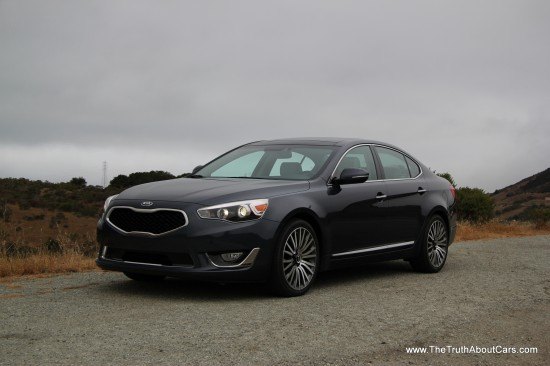













































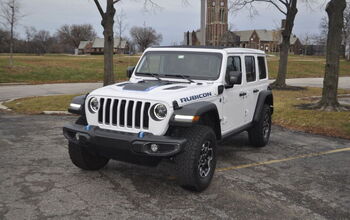


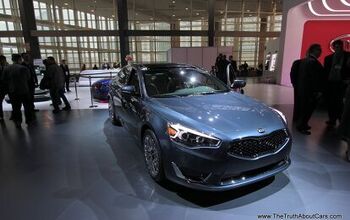
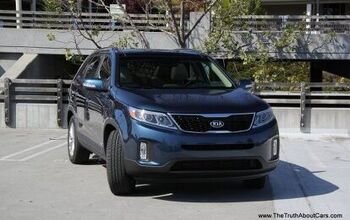
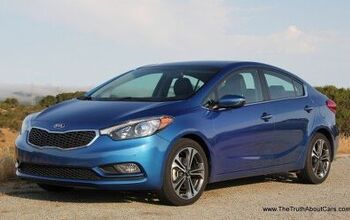





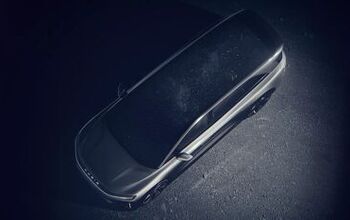






Comments
Join the conversation
I would rather have a Japanese or Korean car with less maintenance than a BMW that costs much more to maintain. I realize BMW and Mercedes are status symbols but I would rather have reliability and lower maintenance costs than something that can travel on the Autobann at 100 mph or above. I seldom have the need to go above the speed limit and I would much rather have a vehicle that I can drive when I need it rather than visit it at the repair shop. I actually like the new GM and Ford vehicles and would choose them over any German vehicle. I would definitely choose a Japanese or Korean vehicle over a German vehicle. I want a reliable vehicle not a status symbol. My wife's new CRV has been an excellent vehicle, even though it will not impress those who are into BMWs and Mercedes. I could afford both the BMW and Mercedes but I just as soon have a reliable and dependable vehicle and not a status symbol.
"and about $1,600 cheaper than a Lexus ES350." And about $14,000 cheaper when you go to re-sell it, since you got something with a Kia badge instead of an L badge. It'd have to be much better, and about 10 grand cheaper before I'd consider it... over the Hyundai option. Additionally, I'm glad they stuck the tail lamps from the Rio hatchback on there. And in what way does the side profile NOT look like an 06+ GS? Can't wait to see that white center arm rest after 5 years use. Or the rest of the interior, for that matter.